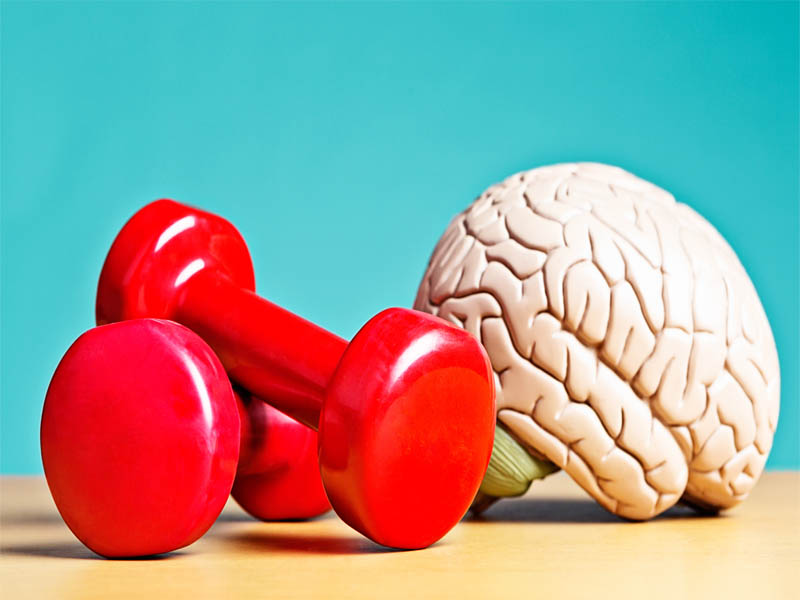We all know the effects of exercise on our physical well-being, but what about the effect of physical activity/exercise on our mental health? Volumes have been written on the beneficial effects of exercise or any physical activity on our mental health, but let us try to break it down into small nuggets of specific aspects of mental health, and how they are impacted by exercise.
People who exercise regularly tend to do so because it gives them an enormous sense of well-being. They feel more energetic throughout the day, sleep better at night, have sharper memories, and feel more relaxed and positive about themselves and their lives. In a previous article, we had looked at the biochemical basis of this feeling of well-being and happiness, and how they are boosted by physical activity. Now we turn our attention to specific mental health issues and how they may be helped by exercise.
DEPRESSION
Studies have demonstrated that mild to moderate depression can actually be treated by exercise, equally effectively as medication. An added advantage is the complete absence of side effects of medicines. A recent study by the Harvard T.H. Chan School of Public Health, USA found that running for 15 minutes a day or walking for an hour reduced the risk of major depression by 26%. Apart from alleviating depressive symptoms, exercise can also prevent relapse of such symptoms. There are many mechanisms by which exercise plays a salutary role in depression:
– growth of new neural connections
– reduction of inflammatory changes in the brain
– activation of new neural pathways, thereby avoiding the negative, depression-inducing pathways
– release of endorphins or the ‘feel-good’ hormones
– providing a distraction from the cycle of negative thoughts that feed depression
ANXIETY
Exercise is a natural and effective anti-anxiety treatment. It relieves tension and stress,
boosts physical and mental energy, and enhances well-being through the release of
endorphins, as mentioned above. Paying attention to the very exercise or aspects of it, such as the feeling of your feet striking the ground, the wind on your skin, etc can impart a feeling of mindfulness, thereby interrupting the flow of negative thoughts.
STRESS
Mental stress leads to physical manifestations, manifested by tensing of muscles, especially in your face, neck, and shoulders, leaving you with back or neck pain, or painful headaches. You may feel a tightness in your chest, a pounding pulse, or muscle cramps. You may also experience problems such as insomnia, heartburn, stomachache, diarrhea, or frequent urination. The worry and discomfort of all these physical symptoms can in turn
lead to even more stress, creating a vicious cycle between your mind and body. This cycle can be broken by exercise, leading to relaxation and release of all the nervous energy, thereby relieving tension and stress.
ATTENTION DEFICIT HYPERACTIVE DISORDER (ADHD)
This disorder affects areas of the brain that regulates the ability to sit still, concentrate or focus on a particular task. Regular exercise is one of the easiest and most effective ways to reduce the symptoms of ADHD and improve concentration, motivation, memory, and mood. Physical activity immediately boosts the brain’s neurotransmitters like dopamine, norepinephrine, and serotonin levels—all of which affect focus and attention.
OTHER BENEFITS OF EXERCISE
– Sharper memory and thinking, with the advantage of delaying age-related decline of cognitive function.
– Higher self-esteem, with the added advantage of a sense of achievement based on conquering new goals of exercise
– Better sleep, both in duration as well as quality.
– More energy, with a gradual withering away of the feelings of constant tiredness or lack of initiative.
– Stronger resilience, to help one cope with the downs of life, rather than resorting to substance abuse or alcohol.
So it always pays to get off the excuses and start exercising in some form or the other. If you don’t have time for 15 or 30 minutes of exercise, or if your body tells you to take a break after 5 or 10 minutes, for example, that’s okay, too. Start with 5- or 10-minute sessions and slowly increase your time. The more you exercise, the more energy you’ll have, so eventually you’ll feel ready to take on more.
The key is to commit to some moderate
physical activity—however little—on most days. As exercising becomes a habit, you can slowly add extra minutes or try different types of activities. If you keep at it, the benefits of
exercise will begin to pay off.
 |
Dr. A. Kundu, Consultant Cardiac Surgeon, National Heart Institute New Delhi |


